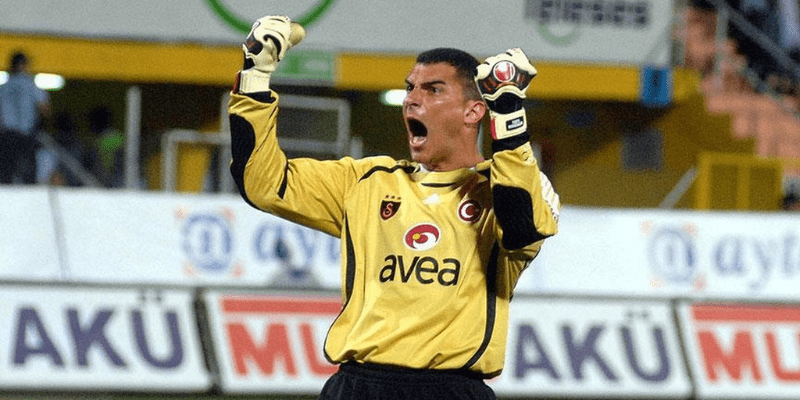From the moment you ask “has Flamengo ever been relegated”, you’re touching on one of Brazilian football’s proudest myths — or legends. Flamengo, the giant of Rio de Janeiro, owes part of its mystique to the idea that it’s never fallen, near-misses, and debate. In this article, HollaBall will walk you through the full story: the facts, the controversies, the edge-of-your-seat seasons, and why Flamengo’s reputation for permanence has become a symbol in Brazilian footy lore.
Let’s dive in.
The Conventional Answer: No, Flamengo Has Never Been Relegated

In most mainstream references — encyclopedias, club profiles, fan media — Flamengo is listed among the Brazilian clubs that have never been relegated.
- Flamengo is frequently grouped with São Paulo as the only Brazilian clubs to have this distinction.
- In club season histories, the “never relegated” label is treated as a point of pride.
- In official summaries of Flamengo’s seasons, there is no record of them finishing a Série A season in a relegation spot.
So if you’re googling has Flamengo ever been relegated, this is the dominant narrative. It’s simple, clean, and powerful — a mark of consistency in a football world of ups and downs.
But is it the full truth?
The Nuances, Near-Misses & Disputes

Whenever fans whisper “almost relegated,” the history nerds in Brazilian football perk up. There are a few cases, controversies, and technicalities that muddy the waters — though none has definitively shown that Flamengo was demoted by performance.
1. 2013 Suspended Player Case
One of the most oft-cited near-misses involves the 2013 season. Flamengo was accused of fielding a suspended player in a match, which could have led to points being deducted — enough to drop them into a relegation zone. But the final outcome favored Flamengo: the league (and/or governing body) upheld their point total, and Flamengo remained safe.
This incident is often mentioned by critics trying to cast doubt on the clean “never relegated” record.
2. League Restructurings and Invitations
Brazilian football has undergone several restructurings. Before the modern Brasileirão (national league) formats took shape, state leagues, regional tournaments, and invited-team systems sometimes determined who played at the national level. Some clubs “disappeared” or lost participation, but not.
3. The “Invincible” Myth vs. Technicalities
Some reports suggest that Flamengo was once “relegated” due to administrative or non-sporting reasons (financial troubles, licensing, or federation sanctions). However, none of these claims is widely accepted by serious football historians. Most of those claims fall into “alternative history” or speculation territory.
So far, no solid, universally accepted record shows Flamengo ever dropped to Série B or another lower tier because of on-field performance.
Flamengo’s Historical League Data & Statistical Records

To test the legend, we turn to data. What do season-by-season records, league tables, and club archives show?
- In the documented history of CR Flamengo’s official seasons, there is no season in which Flamengo has been relegated.
- In club season indexes, they appear in Série A every year they’ve participated in the national stage, without gaps attributed to relegation.
- In the list of unrelegated clubs in association football, Flamengo is routinely included.
All this supports the conventional narrative that Flamengo has never been relegated — at least in any widely accepted, performance-based way.
Why the Legend Matters
Why does this question keep coming up? Because in a footballing culture where relegation is a feared fate, claiming you’ve never tasted it carries weight. For Flamengo:
- It reinforces identity: stability, dominance, permanence
- It becomes a key marketing and pride symbol among fans
- It invites comparison with other storied clubs — both in Brazil and globally — that have gone down
But importantly: debates around this legend highlight how complex Brazilian football’s history is. The evolution of state leagues, national leagues, invitations, and federation politics mean that “relegation” is sometimes more than just “bottom of the table.”
Other Brazilian Clubs with “Never Relegated” Claims
Flamengo is not alone in this conversation. A few clubs have claimed or been considered “never relegated” status, often with caveats:
- São Paulo is almost always listed alongside Flamengo in the “never relegated” club pair.
- Mirassol, a smaller club, is sometimes listed in newer compilations as having never been relegated — but that refers to recent decades in their particular ascent.
- Across the world, great clubs like Real Madrid, Barcelona, Bayern Munich, Athletic Bilbao also have “unbroken top flight presence” records in their countries’ leagues.
But what makes Flamengo special is the scale. They are a powerhouse with massive fanbase, huge expectations — so the legend carries an extra punch.
The Verdict: Has Flamengo Ever Been Relegated?
After weighing the evidence, here’s what we can confidently say:
- No, Flamengo has never been relegated in the commonly understood, sporting sense (i.e. finishing in a relegation spot in Série A).
- There have been controversies and near-misses, but none has led to an actual demotion.
- The “never relegated” label is broadly accepted in football literature and among fans.
- As always, caveats apply because of Brazil’s evolving league systems — but on the core question, Flamengo has kept its top-tier status intact throughout.
Conclusion
In this article, HollaBall confirms that Flamengo has never been relegated — not by performance, not by points deduction, and not by ordinary league rules. That record stands as a testament to their consistency, ambition, and stature in Brazilian football.
If you enjoyed this deep dive into Flamengo’s unbeaten top-flight record, stick around. You might also like:
- Profiles of clubs with similar “never relegated” streaks
- A season-by-season breakdown of Flamengo’s closest relegation scares
- Comparative stat-articles: “Which top clubs have never been relegated?”
Want me to build one of those next? Just say the word.






